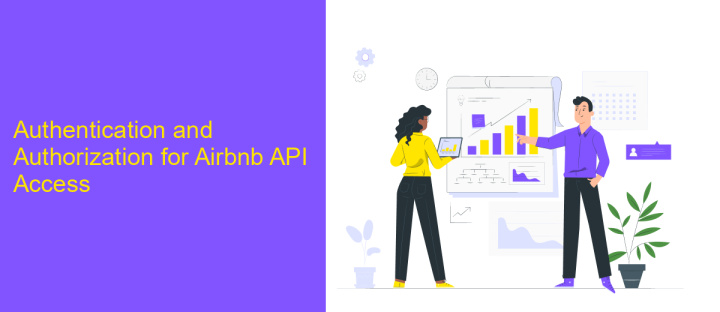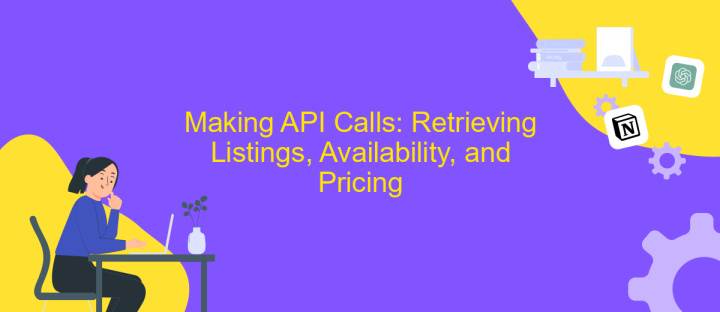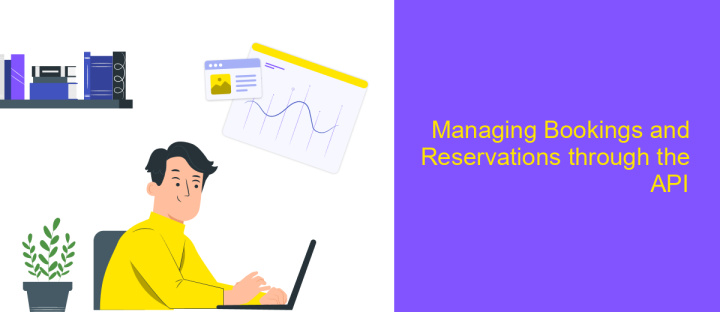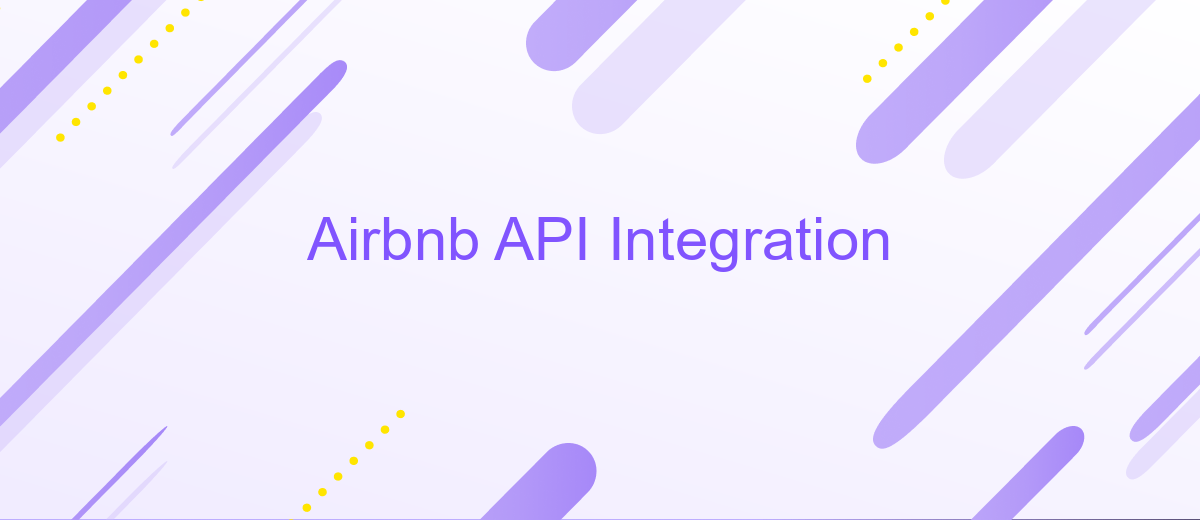Airbnb API Integration
In the rapidly evolving world of travel and accommodation, seamless integration with platforms like Airbnb has become essential for businesses looking to enhance their offerings. Airbnb API integration allows developers to access a wealth of data and functionality, enabling them to create bespoke applications and services that cater to the unique needs of travelers and hosts alike. This article explores the benefits and intricacies of integrating Airbnb's API.
Introduction to Airbnb API and its Capabilities
The Airbnb API is a powerful tool that allows developers to seamlessly integrate Airbnb's vast accommodation offerings into their applications. By leveraging this API, businesses can enhance their platforms by providing users with access to Airbnb's extensive database of rental properties, improving user experience and expanding service offerings. The API facilitates real-time data access, enabling developers to retrieve information on property availability, pricing, and booking details, making it an essential component for travel-related applications.
- Access to comprehensive property listings, including photos, descriptions, and amenities.
- Real-time availability and pricing data for accurate booking processes.
- Integration of booking and reservation management functionalities.
- Support for user authentication and secure data transactions.
- Options for filtering and searching properties based on user preferences.
Utilizing the Airbnb API can significantly enhance the functionality of travel and hospitality platforms. It not only broadens the scope of available accommodations but also streamlines the booking process, offering users a more efficient and engaging experience. By tapping into Airbnb's extensive network, businesses can provide a more comprehensive service, meeting diverse traveler needs and preferences.
Authentication and Authorization for Airbnb API Access

Accessing the Airbnb API requires robust authentication and authorization mechanisms to ensure secure data exchange. The first step involves obtaining an API key, which acts as a unique identifier for your application. This key must be kept confidential, as it is used to authenticate requests to the API. OAuth 2.0 is the standard protocol employed by Airbnb for authorization, allowing users to grant your application access to their data without sharing their credentials. Implementing OAuth 2.0 involves redirecting users to Airbnb's authorization server, where they can approve or deny access. Upon approval, an access token is issued, enabling your application to interact with the API on behalf of the user.
To streamline the integration process, services like ApiX-Drive offer tools to simplify authentication and authorization for Airbnb API access. ApiX-Drive provides a user-friendly interface to configure API connections, manage tokens, and automate data workflows. By using such platforms, developers can reduce the complexity of manual API management, ensuring a more efficient and secure integration. These services often include monitoring and logging features, which help track API usage and detect potential security issues, thereby enhancing the overall reliability of the integration.
Making API Calls: Retrieving Listings, Availability, and Pricing

To effectively integrate with Airbnb's API, understanding how to make API calls is essential. The process involves fetching data related to listings, their availability, and pricing details. These elements are crucial for building a comprehensive application that interacts seamlessly with Airbnb’s platform. By making precise API requests, developers can access current information, ensuring users receive accurate and up-to-date data.
- Authenticate your application with Airbnb’s API to obtain the necessary access tokens.
- Use the endpoint for retrieving listings to collect data on available properties, including descriptions and host information.
- Fetch availability details by querying the specific endpoint, ensuring you access the latest booking information.
- Extract pricing data by making calls to the relevant API endpoint, allowing you to display accurate rates to users.
By following these steps, developers can efficiently retrieve essential data from Airbnb's API. This process not only enhances the user experience by providing real-time information but also empowers developers to build robust applications. Ensuring proper authentication and utilizing the correct endpoints are key to successful API integration, enabling seamless interaction with Airbnb's vast database.
Managing Bookings and Reservations through the API

Integrating with the Airbnb API offers a seamless way to manage bookings and reservations for property managers and hosts. By leveraging the API, users can automate the handling of reservations, minimizing manual input and reducing the risk of errors. This integration provides real-time updates, ensuring that availability calendars are always current and accurate.
The API allows for efficient management of various aspects of bookings. It facilitates the creation, modification, and cancellation of reservations directly from your application. This level of control helps streamline operations, enabling hosts to focus on providing excellent guest experiences rather than administrative tasks.
- Automate booking confirmations and notifications to guests.
- Synchronize availability across multiple platforms to prevent double bookings.
- Access detailed reservation data for better reporting and analysis.
- Manage guest communication to enhance customer satisfaction.
By utilizing the Airbnb API for managing bookings, hosts can enhance their operational efficiency. The API not only simplifies the reservation process but also provides valuable insights into guest behavior and preferences. This data-driven approach helps hosts make informed decisions, ultimately leading to increased bookings and improved guest experiences.
Best Practices and Common Pitfalls in Airbnb API Integration
When integrating with the Airbnb API, it's crucial to adhere to best practices to ensure a seamless and efficient connection. Start by thoroughly reading Airbnb's API documentation to understand the endpoints and data structures. Implement robust error handling to manage unexpected API responses and rate limits effectively. Regularly update your integration to align with Airbnb's API changes and enhancements. Additionally, using a service like ApiX-Drive can streamline the integration process by offering pre-built connectors and automation tools, reducing the need for extensive coding and manual configurations.
However, there are common pitfalls to avoid during Airbnb API integration. One major issue is neglecting data security; always use secure authentication methods like OAuth to protect user information. Avoid hardcoding API keys or secrets in your application, as this can lead to unauthorized access. Another pitfall is failing to test the integration thoroughly in a sandbox environment before going live, which can result in unexpected errors and data inconsistencies. By being aware of these pitfalls and following best practices, you can ensure a successful and secure Airbnb API integration.
FAQ
What is Airbnb API Integration?
How can I start integrating with the Airbnb API?
What are the benefits of using Airbnb API Integration?
How can I automate my Airbnb API Integration without extensive coding?
Are there any limitations or considerations when using Airbnb API Integration?
Do you want to achieve your goals in business, career and life faster and better? Do it with ApiX-Drive – a tool that will remove a significant part of the routine from workflows and free up additional time to achieve your goals. Test the capabilities of Apix-Drive for free – see for yourself the effectiveness of the tool.

